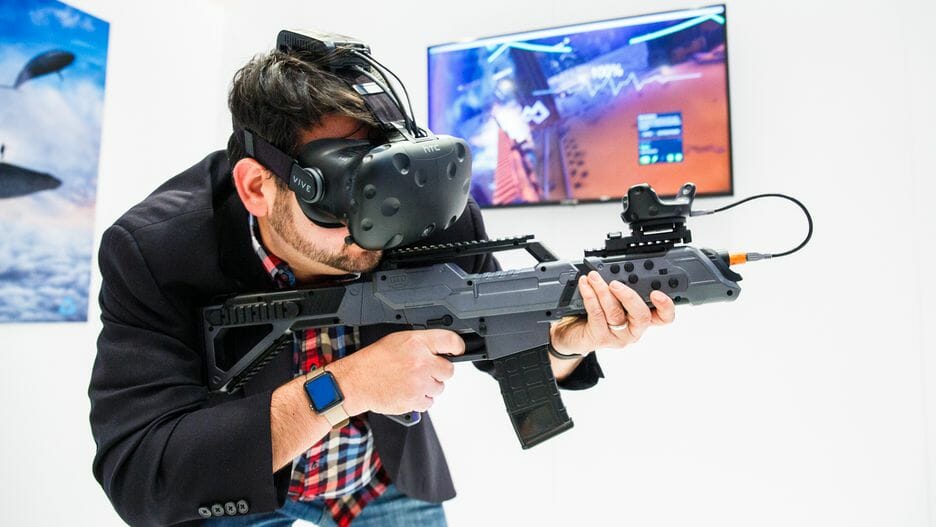Is Virtual Reality the Future of Gaming?

Is Virtual Reality the Future of Gaming?
The gaming industry has always been at the forefront of technological innovation, from the early days of pixelated arcade games to today’s ultra-realistic, open-world experiences. One of the most exciting advancements in recent years is Virtual Reality (VR)—a technology that promises to immerse players in fully interactive digital worlds. But is VR truly the future of gaming, or is it just a passing trend? While the technology has made significant strides, several factors will determine whether VR becomes the dominant gaming medium or remains a niche experience.
The Rise of Virtual Reality in Gaming
Virtual Reality gaming has come a long way since its early iterations. Early VR headsets in the 1990s, such as the Virtual Boy, failed to gain traction due to technological limitations. However, with the introduction of modern VR headsets like the Oculus Rift, HTC Vive, PlayStation VR, and Meta Quest, the experience has become more refined and accessible.
VR allows players to step into digital worlds, offering an immersive experience that traditional gaming cannot replicate. Games like Beat Saber, Half-Life: Alyx, and The Walking Dead: Saints & Sinners showcase the potential of VR by combining motion tracking, hand controllers, and 360-degree visuals to create truly interactive environments. As VR technology continues to improve, gaming experiences are becoming more seamless, drawing players into highly realistic and engaging virtual spaces.
The Advantages of VR Gaming
-
Immersive Gameplay – Unlike traditional gaming, where players interact with a screen, VR places them directly inside the game world. This level of immersion enhances gameplay, making every action feel more realistic and impactful.
-
Physical Engagement – VR encourages movement, making gaming more active than ever before. Instead of pressing buttons to swing a sword or fire a gun, players physically perform these actions, adding a new layer of engagement.
-
Social and Multiplayer Experiences – VR enables innovative social interactions through virtual spaces. Games like VRChat and Rec Room allow players to communicate, play games, and build virtual relationships, fostering a sense of presence that traditional multiplayer games lack.
-
Training and Skill Development – Beyond entertainment, VR is being used for practical applications such as military training, medical simulations, and sports practice. These applications prove that VR gaming has potential beyond just fun—it can be an educational and skill-building tool.
Challenges Facing VR Gaming
Despite its potential, VR gaming still faces significant challenges that could prevent it from becoming the industry standard.
1. High Cost of Entry
One of the biggest obstacles to widespread VR adoption is the cost of the technology. High-end VR headsets, along with necessary accessories like motion controllers and sensors, can be expensive. Additionally, many VR games require powerful gaming PCs or consoles, further increasing the financial barrier for consumers.
2. Motion Sickness and Comfort Issues
Not everyone can handle extended VR sessions. Some players experience motion sickness, dizziness, or discomfort when using VR headsets for long periods. While improvements in frame rates and tracking technology have reduced these issues, they remain a concern for some users.
3. Limited Game Library
While there are many VR-exclusive games, the overall game library for VR is still smaller compared to traditional gaming. Developers often hesitate to invest heavily in VR-exclusive titles due to a smaller audience base, leading to fewer high-quality games being released.
4. Space and Setup Requirements
Unlike traditional gaming, which only requires a screen and a controller, VR gaming often demands physical space for movement. Many VR setups require a dedicated play area, which may not be feasible for players in smaller living spaces.
5. Hardware Limitations and Technological Gaps
Although VR technology has improved significantly, there are still technical limitations. Wired headsets, battery life, and resolution quality can impact the overall experience. Wireless and standalone VR headsets, such as the Meta Quest series, have addressed some of these issues, but further advancements are needed for a seamless experience.
The Future of VR in Gaming
So, will VR dominate the future of gaming? The answer likely lies in continued advancements in technology, accessibility, and game development.
1. More Affordable and Advanced Hardware
As technology advances, VR headsets are expected to become more affordable and user-friendly. Companies like Meta, Sony, and Apple are investing in VR and AR technologies, suggesting that future headsets will be lighter, wireless, and more powerful, making them accessible to a wider audience.
2. Expanding Game Library and AAA Titles
More game developers are exploring VR as a viable platform, leading to an increase in AAA-quality games designed specifically for VR. As the library of VR-exclusive games grows, more players will be drawn to the platform.
3. Integration with the Metaverse
The concept of the Metaverse, a shared virtual world where users can interact, work, and play, is closely tied to VR. Companies like Meta (formerly Facebook) are heavily investing in this idea, aiming to merge social interactions, gaming, and digital workspaces into one immersive experience.
4. Advancements in Haptic Feedback and AI
Future VR systems will likely incorporate haptic feedback suits, AI-driven NPCs, and brain-computer interfaces, further enhancing immersion. These innovations could create hyper-realistic virtual worlds where players feel and interact with the environment in ways never seen before.
5. Cross-Platform VR Experiences
As VR becomes more mainstream, cross-platform play between VR and non-VR players will become more common, allowing for a more inclusive gaming experience.
Conclusion: Is VR the Future of Gaming?
Virtual Reality has the potential to redefine gaming, offering immersive, interactive, and engaging experiences that traditional gaming cannot match. However, the widespread adoption of VR depends on overcoming its current challenges, including high costs, hardware limitations, and accessibility barriers.
While VR may not completely replace traditional gaming, it will likely coexist alongside consoles and PC gaming, gradually becoming a mainstream gaming option as technology advances. With ongoing improvements in affordability, game development, and user experience, Virtual Reality is well on its way to becoming a significant part of the future of gaming.
9 0 7
Write a Comments
* Be the first to Make Comment















